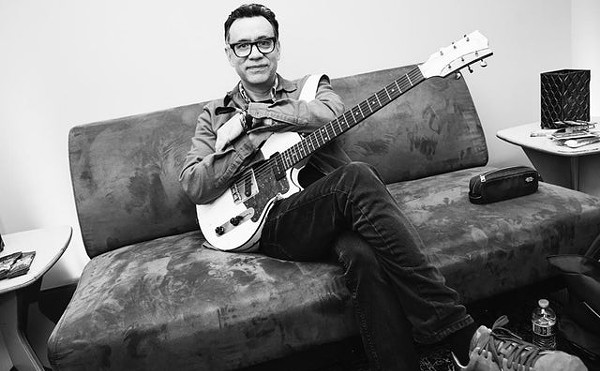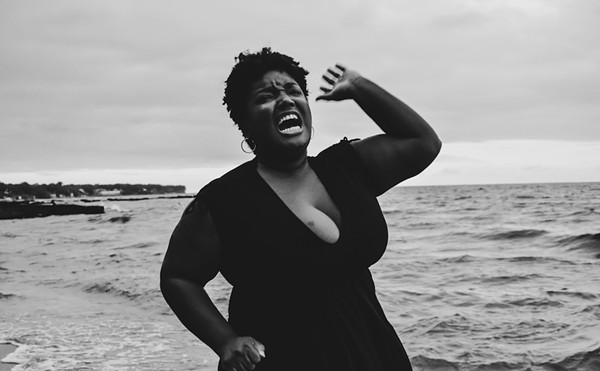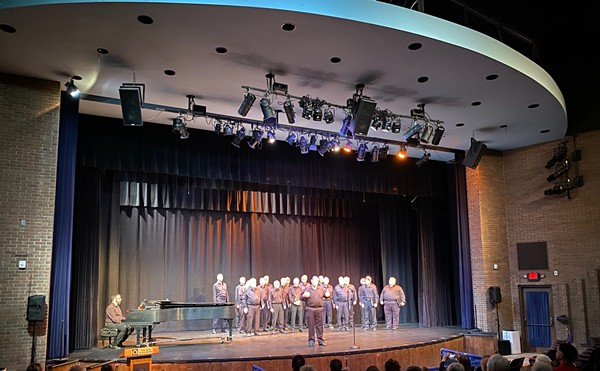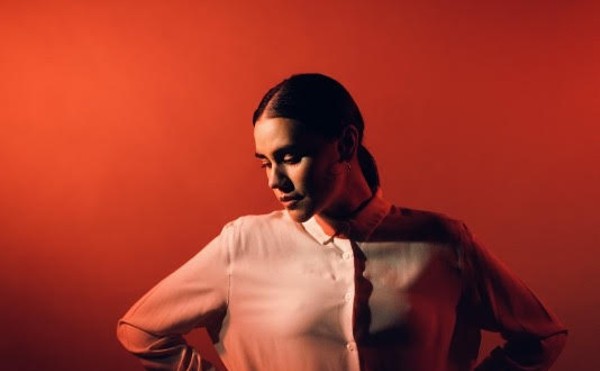Shortly after being hung in the Cleveland Clinic's main building in 2007, "My Home Town" ignited controversy that forced it down off the wall.
The painting by Michelangelo Lovelace, Sr. depicts an imaginative panorama of the Cleveland skyline, and a crowd of hundreds of residents. Many of the faces on the right hand, "West," side of the work are white, whereas the left, "East," side is populated largely by blacks, including many women curvy in a way that was read as stereotypical.
This drew accusations of racism against the painter, though Lovelace himself is black, and a proud lifelong Clevelander. "I think people misunderstood who I was," Lovelace, 51, says. "I painted the way I remember Cleveland being—white on the West, black on the East, and with downtown where people came together in the middle."
Though "My Home Town" was never reinstalled at the Clinic, it was displayed by the Baltimore Visioneer Museum and reproduced as a poster which sold startlingly fast. Lovelace's artistic career survived the controversy, and now receives a retrospective in The Journey, a two-decade survey at the Artists Archives of the Western Reserve."
"My Home Town," featured in the show, belongs to Lovelace's Urban Streets acrylic series, which examines Cleveland's African American community with all its travails and joys.
A more general examination of race in America occurs in Lovelace's earlier "Rodney King" series (1992-1993), inspired by his own travels through Los Angeles in the wake of the infamous beating and acquittals. These mixed-media works are more abstract than the storybook style of Lovelace's "Streets" paintings. They use swaths of graffiti, clipped headlines, and found photographs to convey a claustrophobic sense of rage. "Eracism" puts Edvard Munch's "Scream" on a wall splashed with angry red text, stalking Klansmen, and urging slogans ("WAKE UP CALL").
The Artists Archives exhibit has a sampling of Lovelace's work that very effectively captures the complexity of the artist's views, not only of society's evolution during the last two decades, but of his own lifetime.
"I think every generation has to take a stand to move forward," Lovelace says.
An opening reception will be held June 15 from 5 to 8 p.m. Through July 20 at 1834 E. 123rd St. Call 216-721-9020 or go to artistsarchives.org.
Artists Archives is open Wednesdays through Saturdays or by appointment.











